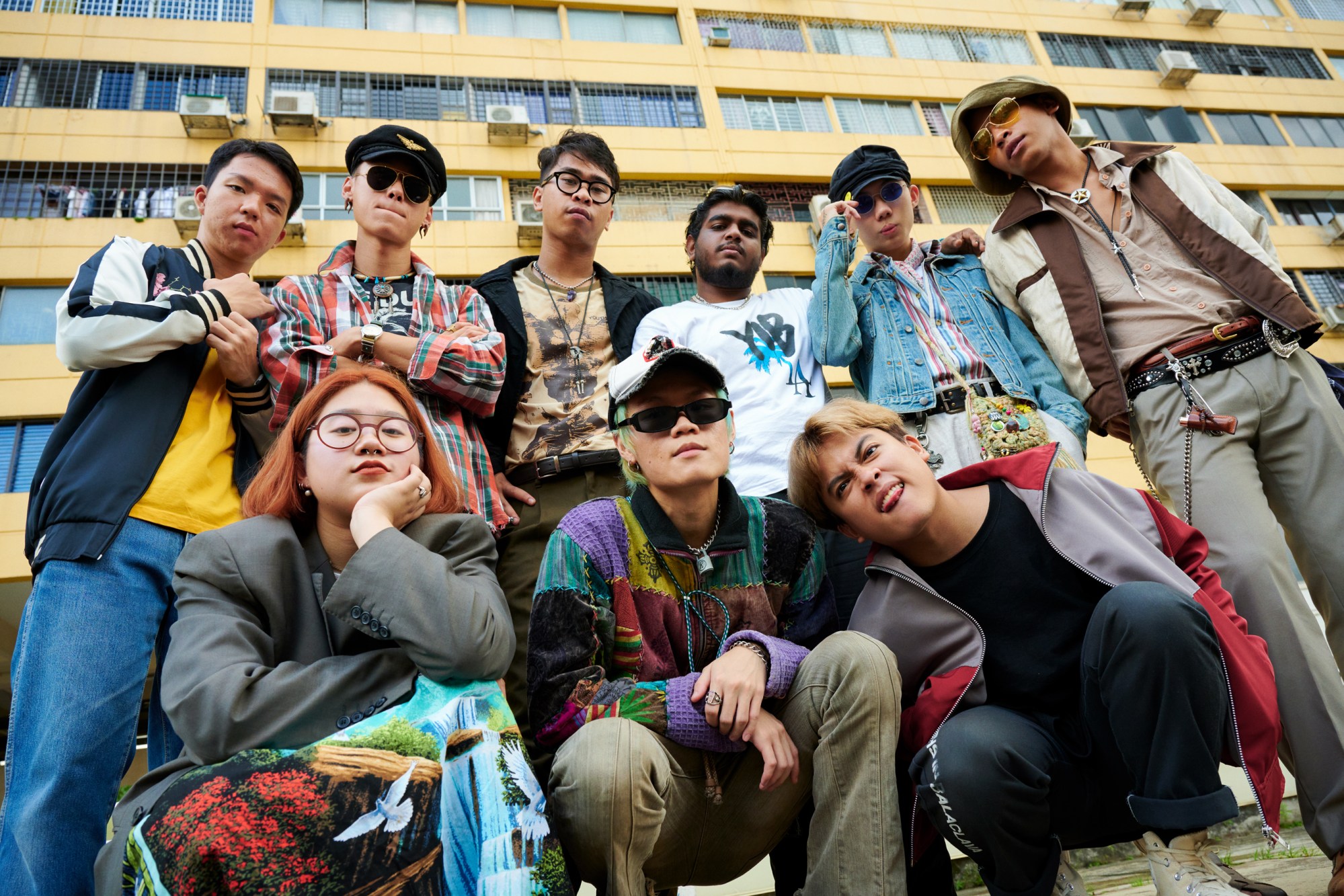As members of Youths in Balaclava trickle onto a rooftop carpark in downtown Singapore, it’s clear there’s nothing predictable about their style. They combine vintage items, which have been cut up, reversed and reworked, with pieces from their own collections and accessories that adhere to no code. Making up this resplendent troop are 13 members from diverse backgrounds who met during high school and, around the same time, formed the DIY collective. Using Youths in Balaclava as an outlet for their collective creativity, they soon gathered an underground following before being discovered by Dover Street Market’s Adrian Joffe, who gave them his blessing and covetable real estate in stores around the world. While this would have been a coup for any young designer, it was an even bigger deal for this burgeoning group who grew up worlds away from fashion’s recognised capitals.
Starting out in 2015, YIB made whatever they could afford to produce: small collections of cool graphic t-shirts with names like Traitors 2 Society and Twisted Paradise, which fused ideas around Singapore’s rigid culture with details inspired by their favourite musicians and artists. Just last year, as resounding proof of their upward trajectory, the 13 members boarded a plane to show their latest collection, Lost In Transit — including their inkblot prints which change colour in sunlight — in an elegant Place Vendôme showroom at Paris Fashion Week. They were the first Singaporean fashion collective to show on that scale and couldn’t have been better representatives for Singapore’s evolving creative community.
With the last of the YIB members completing Singapore’s mandatory two-year military service — an experience that could have easily signalled the end of the group — they’re looking forward to being able to spend more time together working on the collective that means everything to them. We spoke to Fyq, YIB’s creative director and unofficial spokesperson, about the group’s experience coming up in Singapore and how they plan to continue rising around the world.
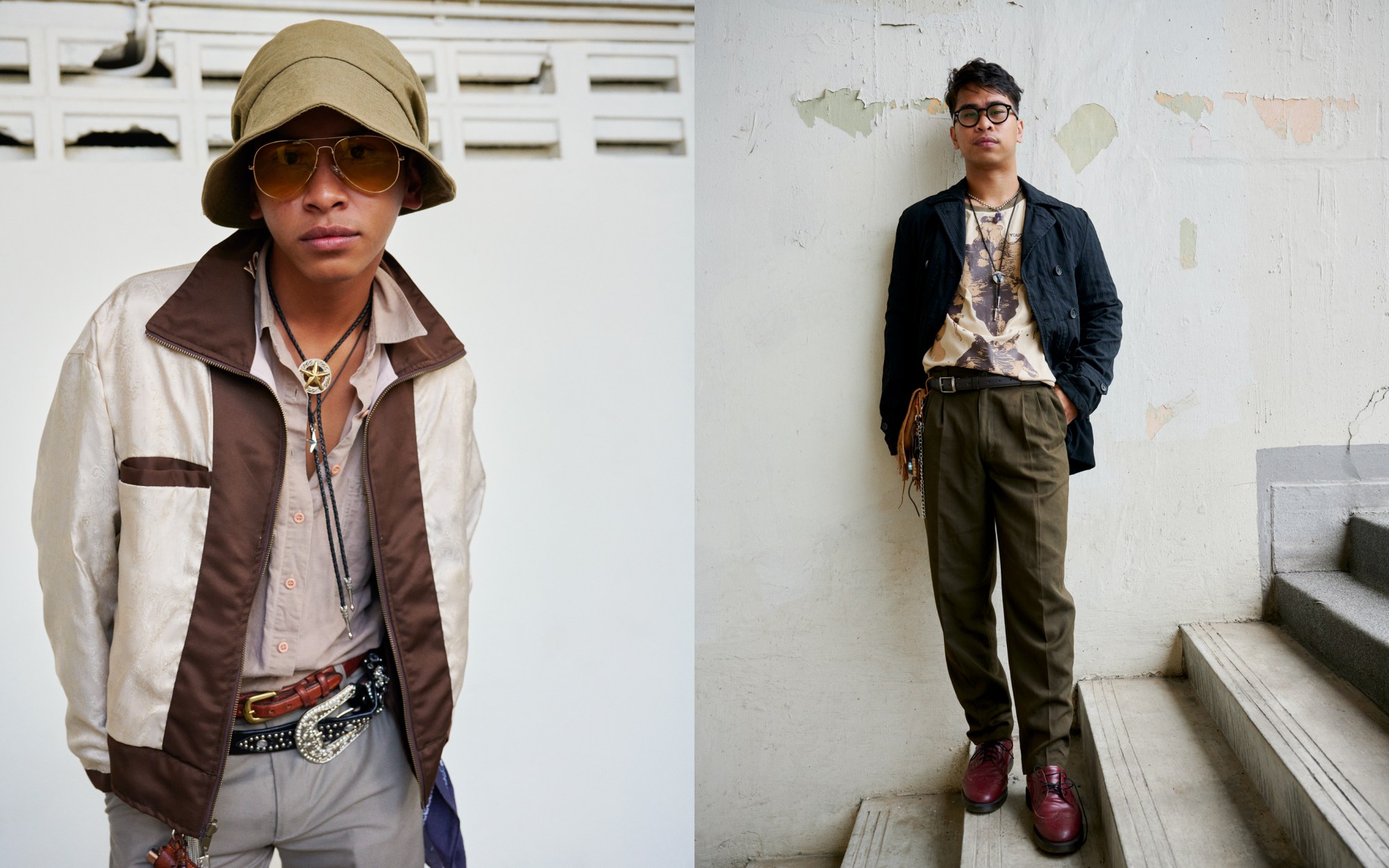
As we understand, your collections form a loose commentary on life in Singapore and growing up in a city with strict regulations. Is that your intention?
Yes, if you want to do something creative here, traditionally, everything is working against you. Life is geared towards preparing you to work in a white or blue-collar job. And basically, politically, Singapore is preparing young people to be service-ready. So, to go into the creative industry is difficult because there’s not much support. When we told our parents we wanted to do fashion they were like, “Are you nuts, how are you going to survive?” With the rising cost of living, they didn’t think it was practical. Thankfully for us, our hard work paid off and we’ve been able to prove to our parents that this will go somewhere.
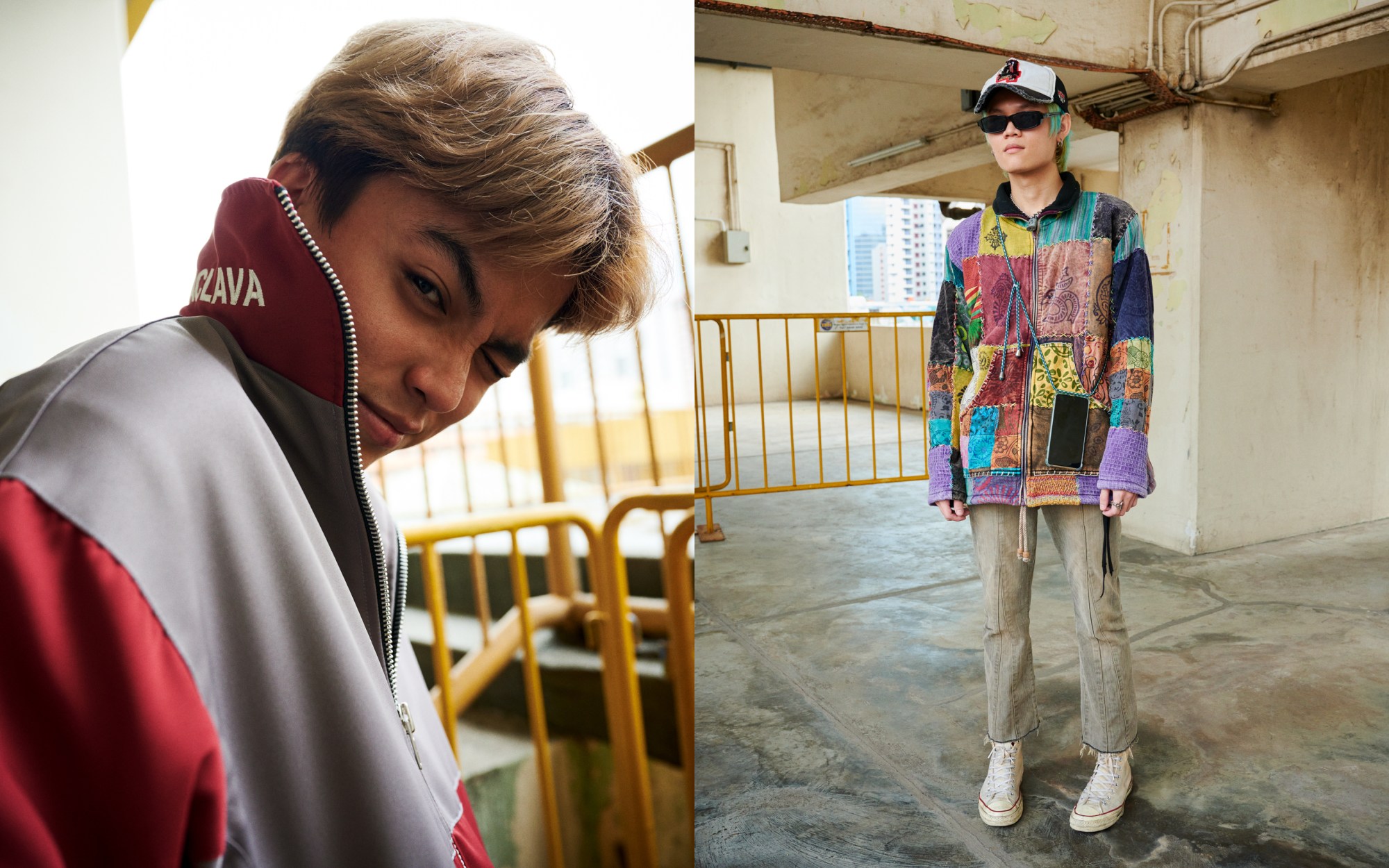
You’re showing people here in Singapore that it can be done.
Without the advantage of privilege, we also understood we needed a business plan, so we’re free of banks or investors who might restrict us. That’s really important to us.
Did you enjoy growing up in Singapore?
Yes we loved it. We love our language the most. It’s a mixture of lots of things, like an anti-colonial language.
Would you say the country’s mandatory military service is a hindrance to creativity?
Yes, it’s a huge hindrance but we decided to try to turn the negative aspects into a positive. It teaches you a lot. It takes you out of your comfort zone and people really transition from boys to men. It’s physically exhausting and it leaves little time to work on anything else but it does make you realise that time is precious and that being able to make choices about your life is a privilege. You go in, have your head shaved, and have to get up at 5 AM but you come out stronger. It made us realise how much we love each other and that we’re determined to do this so we can see each other every day.
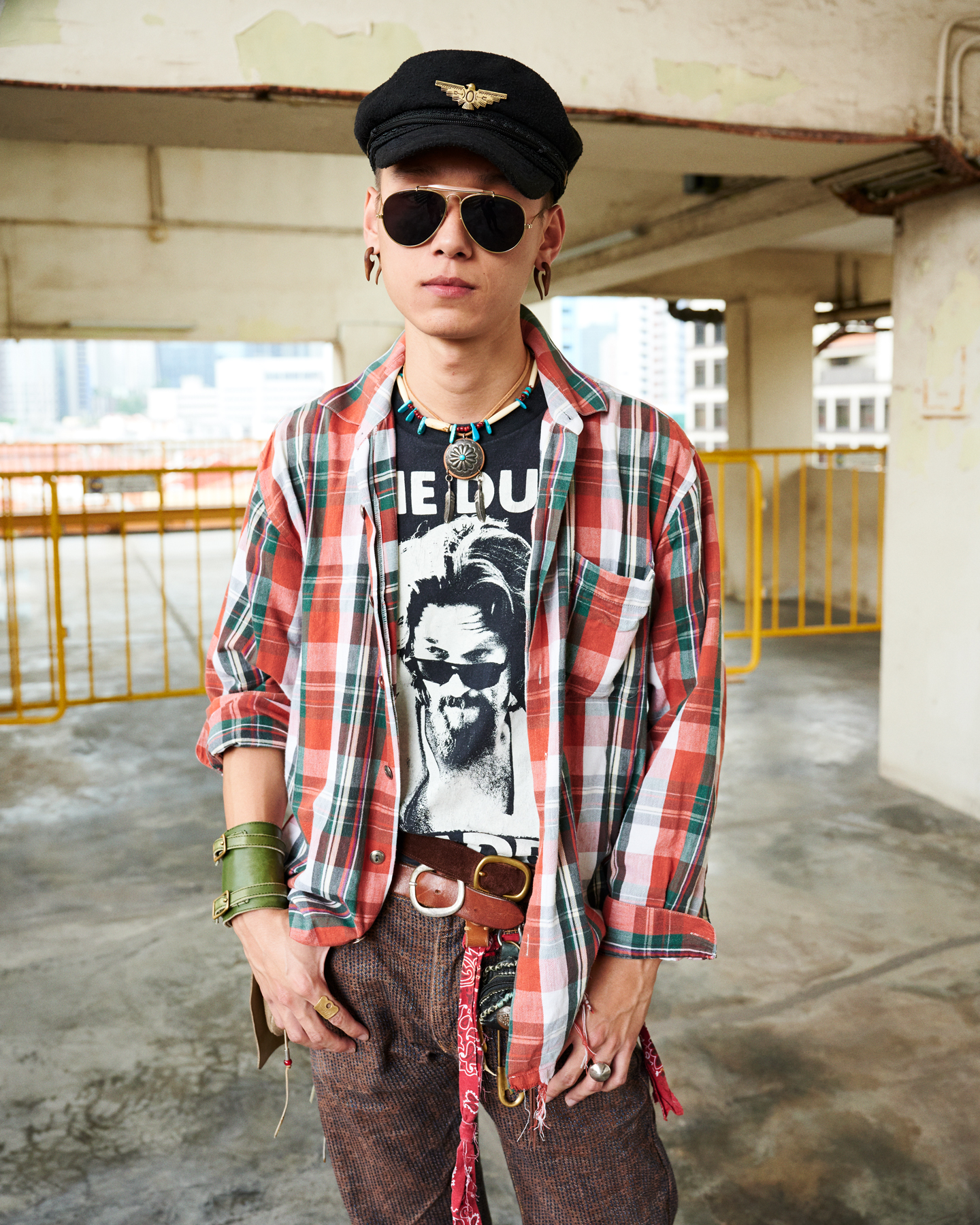
After Dover Street Market opened in Singapore and Ryan O’Toole Collett made a photo book featuring you guys, Adrian Joffe came to town to meet you. How was that experience?
It was incredible. When Adrian Joffe saw those photos apparently he was like, “Who the fuck are these kids?” When we agreed to work with him, he flew to Singapore and we took him to eat a local meal called Nasi Lemak. I guess the expectation is that we’d take him somewhere fancy but we took the train and had traditional food. It was good for him to understand us and how we live and operate.
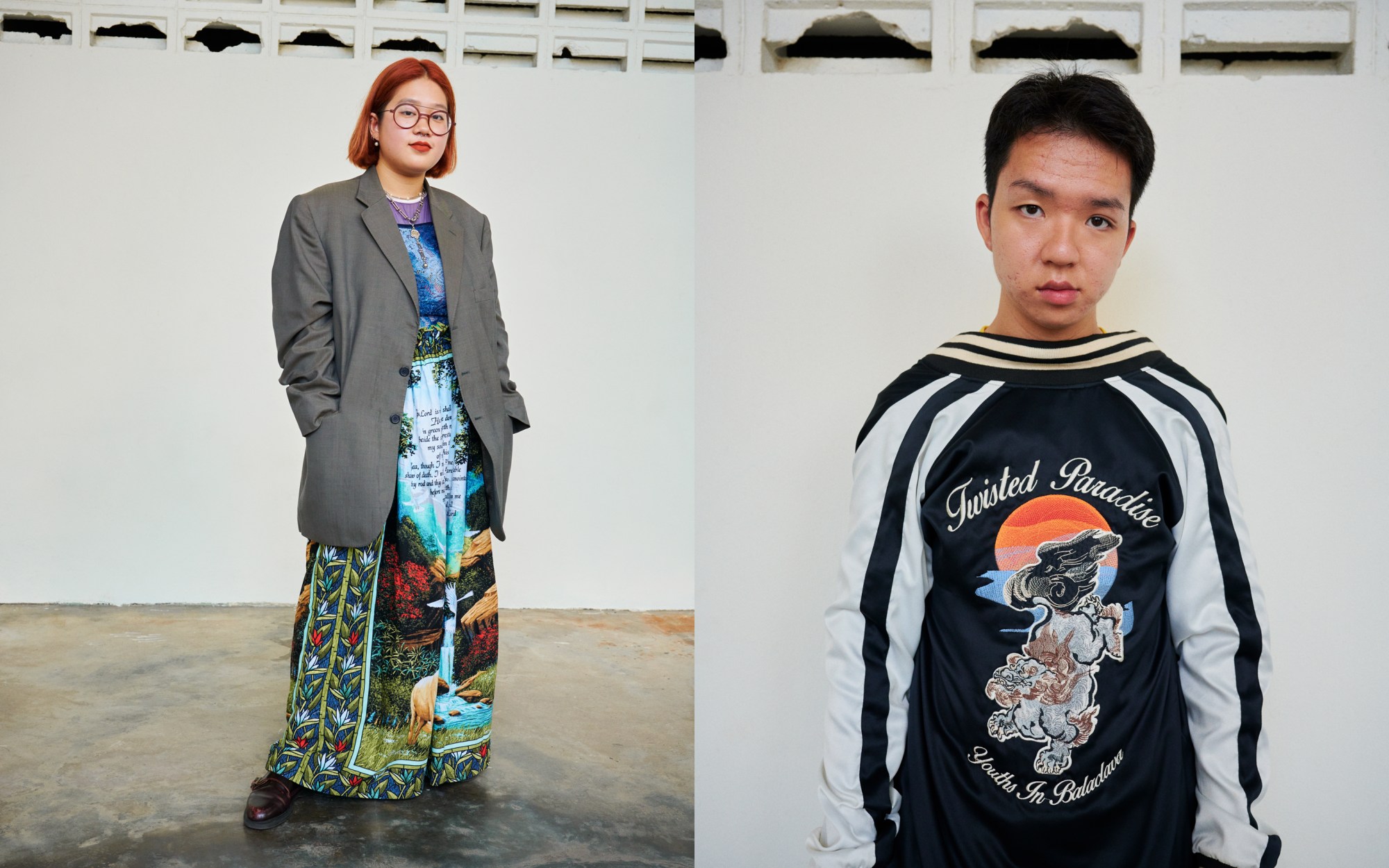
You showed in Paris last year, how was that experience?
It was very surreal. We had some drama with our flights and luggage on the way, so when we touched down, we still couldn’t believe we were there. We were picked up by Rei Kawakubo’s personal driver and based in a beautiful showroom with this amazing view of Paris. We still did it our way – it was all pretty DIY and we modelled the garments for example but it was just such a proud moment. We also had to explain to a lot of people where Singapore is on the world map.
Once you’re all completed military service and have time to focus on Youths in Balaclava, can we expect to see more from you?
Yes! We’re so excited that we’ll finally be able to make clothes and art that reflects our true vision. We’re also excited about having time to mentor younger kids in Singapore, kids on financial assistance for example, who mightn’t think they have options. We want to show them that they can do it. Just like us.
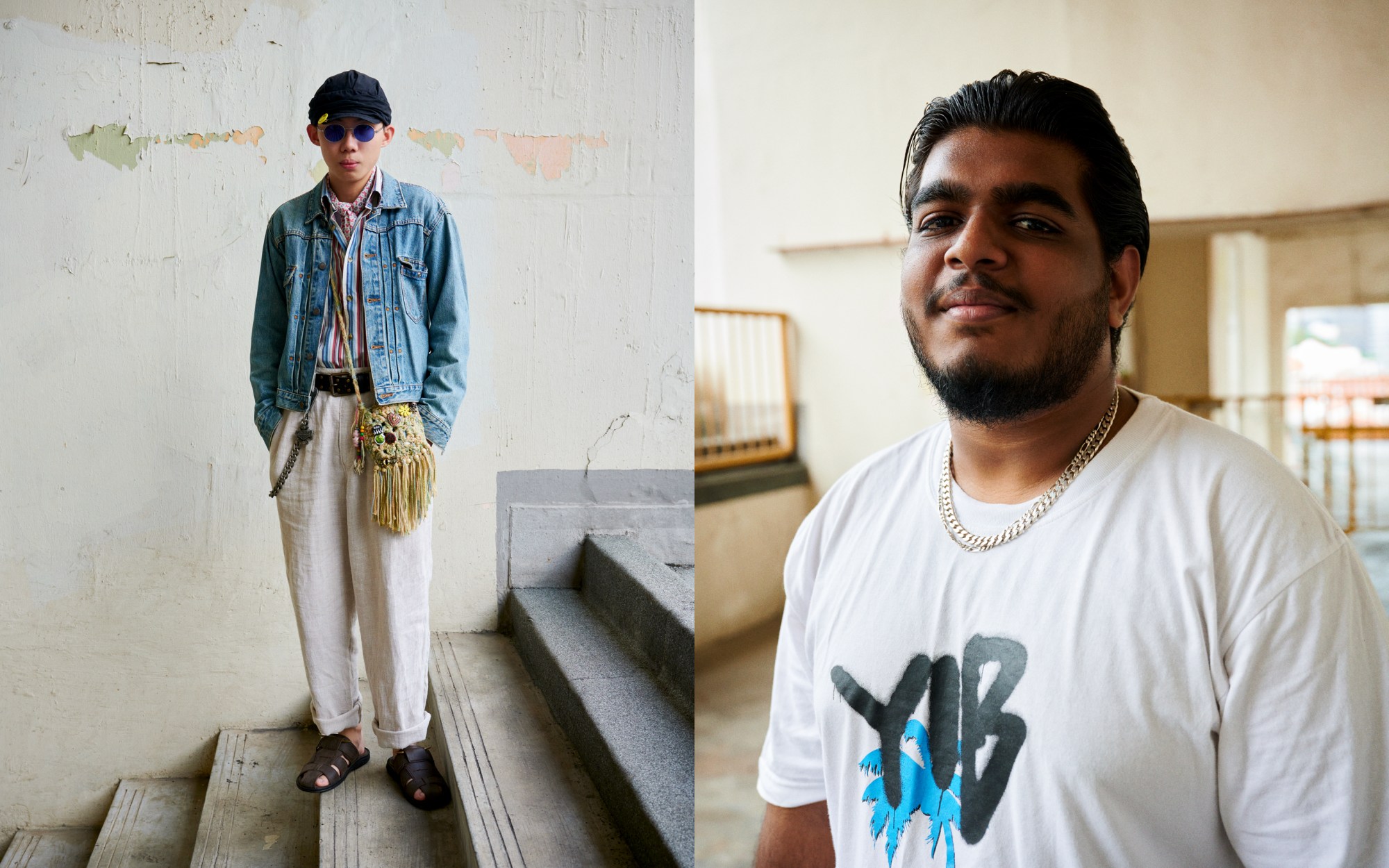
Credits
Photography Stefan Khoo
Photography Assistant Alif
